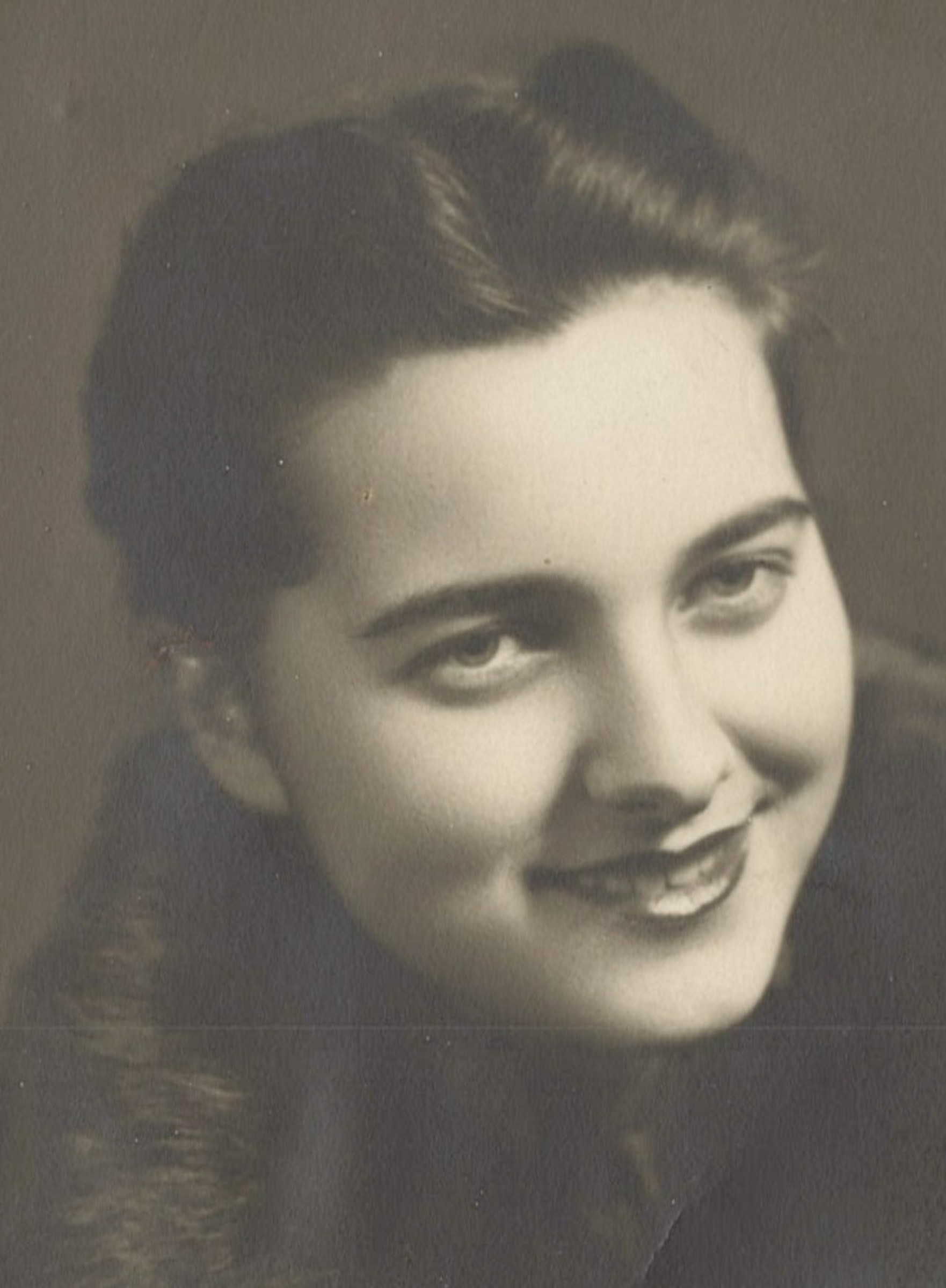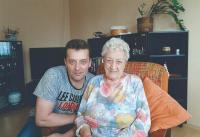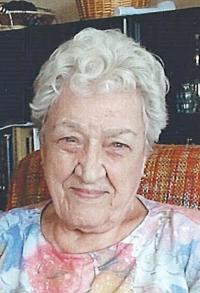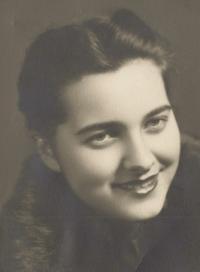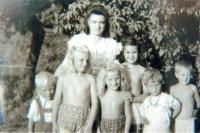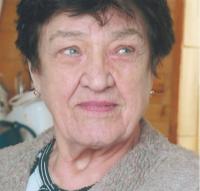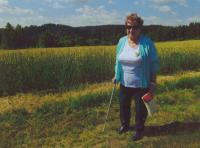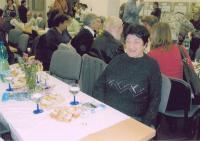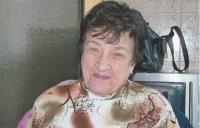“We didn’t have dad and my mom, the poor woman, was thus going to those landowners and asking them to give her something so that she would be able to feed us. She did not have anything. And I was babysitting, I was twelve years old, and there were the younger ones, and one day, as we were sitting with the children in the door and talking, together with the neighbour’s kids, too, suddenly two gentlemen arrived there in a car and they asked if the Zimmerman family lived there, and they asked me to show them where the village administration office was located. I said: ‘Why, you have just passed by it.’– ‘Yes, come, you need to go.’ They pushed me inside the car. That was it, and nobody knew anymore where I was, and who I was, nothing. They brought all of us to Mikulov and in Mikulov they placed us, if you remember those cars, cars that were used for transporting pigs or cattle, and they forced us to get into one such train car. The train started moving. I was twelve and I asked: ‘Where are they taking us now?’ All of them, all of them were crying, and the train was moving very slowly, it was full. There were twelve train cars and all of them were full. Well, this was my first experience, and I asked: ‘What will happen to us?’ We arrived, and the way they did it was that the train went all the way inside the camp. It was a camp for transforming children into Germans and it was constructed in a way like children’s summer camps are now. There was a large meadow and the camp was built on it. There were four of us girls in one tent. Well, it was horrible, but we had to, we had to. I used to pray in the evenings. I was sitting there and there was a Russian girl, and a Pole, and one from Sweden or what country it was, there were four of us. They asked: ‘What are you doing?’ But none of them understood me, only the Polish girl. I said: ‘I am praying.’ And she said: ‘Pray then, so that all of us…’ I said: ‘But you don’t understand me.’ But she told me: ‘Little girl, there is only one God. You are praying and you are praying for us, too, so that God would protect us.’ I said: ‘Well, I will then.’ Every evening, when we got back, they would come only to me to pray. We would always sit down and pray.”
